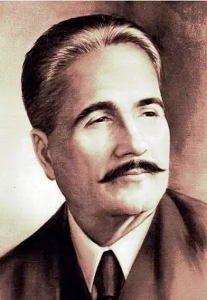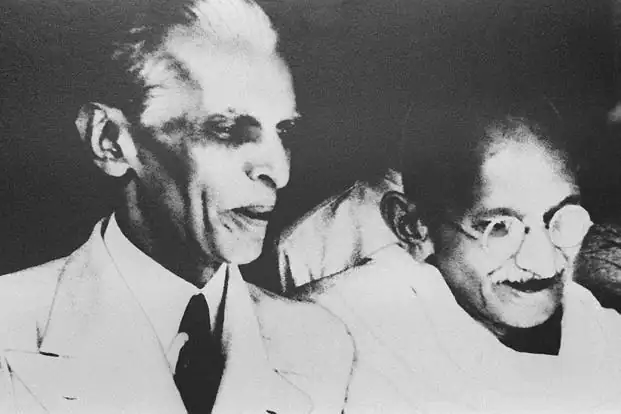Independence Day in India and Pakistan is a strange moment. Celebrating the end of racist imperialism comes along with the underplayed horrors of a Holocaust, of mass murders, carnage and debasement of humanity. As a Pakistani, one is even more compelled to overlook them for the 1947 moment was a moment of double liberation: from the British and the feared supremacy of a Hindu’ nation. Nationalisms and political-communal rhetoric have undermined the imperative of acknowledging the brutality that we as a people unleashed on each other, passed on the blame and then brushed it under the carpet.
The great Hindi writer Krishna Sobti was studying in Lahore in 1947. She had come to Delhi to celebrate her birthday. And what a strange birthday it must have been that Sobti would no longer be a resident of Lahore. In her writings, she has mentioned the evening of August 15 when Sobti and her brother were celebrating the arrival of the Independence moment. Her brother had arranged an exhibition with photographs and speeches of the freedom fighters
The house was also full of visitors from what was now Pakistan. Migrants in search of a new life. Traumatised at perhaps the greatest juncture of modern India. When the young Sobti and her brother called everyone to congregate in the verandah of the house to mark the August 15 festivities, the visitors were hesitant to participate. Some did not accept sweetmeats distributed.
I discovered Sobti and many other writers while researching for my book Delhi by Heart that was released in August exactly four years ago. Visiting India as a Pakistani, finding that there was a shared vista of memory and culture but a brutal present prompted me to write that book. What I perhaps could not cover was that the pre-1947 memories were also dwindling as the generation that witnessed the upheavals and had the experience of a shared past was fading into oblivion. Very soon, the rancor we hear on media and read on the digital spaces will be the truth. The new history tailored to imperatives of religious nationalism.
For decades, Pakistan in the mainstream discourse shaped by the intelligentsia and Congress looked at Pakistan as a historical aberration. An unnatural country carved out of Nehru’s idyllic of a thousands of years old civilisation. The creation of Bangladesh and the gloating by Indira Gandhi was seen as a confirmation of this bias. But this view has been punctured now. If one follows the political narratives-thankfully by a vocal minority -then Muslims as a whole were and are an aberration in a Hindu nation called India.
Seven decades later, this has given a new impetus to the cause and raison d’ etre for Partition in Pakistan. The idea of a Hindu nation is a mirror image of the Muslim nation and a retrospective validation of the two-nation theory which Indira Gandhi gleefully claimed was dead in 1971. Pakistan’s internal polarisation between the ‘hate-India-at-alltimes’ and Make-peace-with-India-forour-own-future’ gets deeper and messier with these developments.

Are we going to ask Iqbal to retract Sare Jahan se Acha Hindustan Hamara and delete it from the corpus of his poetic works?
Tale of Two Sides In Delhi by Heart, my central idea was that despite the cataclysmic events of 1947, India and Pakistan could find the common ground of a shared history, culture and as scientists are showing a common genetic pool. I, for one, found that Delhi was easily a city for me as a Pakistani for everything that concerned my Pakistani-Muslim identity was somehow rooted in what was the enemy territory. I stand by my vision as facts of history are difficult to rewrite.
Perhaps the best illustration of this riddle is Allama Iqbal, the poet of the East and Pakistan’s national poet. His poem Sare Jahan se Acha Hindustan Hamara is a popular patriotic Indian song. Are we going to ask Iqbal to retract these verses and delete it from the corpus of his poetic works? Are we going to deny that Muslim Sufis played a role in India¡¦s history, that Mughal kings translated ancient texts and the world found them? It is easier to change the name of Aurangzeb Road in Delhi and more difficult to deny that Mughal kings married practicing Hindu women who gave birth to future kings of the dynasty.
Our founding fathers on both sides were men of great vision and integrity. But they also displayed monumental follies. Gandhi invoked religious references in nationalist politics. Jinnah was once an ambassador of Hindu-Muslim unity and then gave up the idea, asked for separatism and then realised that communalism was not conducive to affairs of the state. And Gandhi ended up fasting for the rightful shares of Pakistan from the division of the Empire’s assets. And was shot by an extremist.
It is also a well-recorded fact that Jinnah, the founder of Pakistan, wanted to retain his Bombay house and in an interview he had stated that after retirement he planned to visit Bombay frequently. I remember seeing Jinnah’s forlorn house when I visited the city in 2009. It is now a cause for sloganeering and whetting jingoism as one politico in Maharashtra asked for its demolition. On the 70th anniversary of India’s independence, Partition and Pakistan’s creation is a moment to reflect. We cannot continue to blame the colonists for what we have not been able to achieve: addressing the communal, social fault lines and creating societies that are governed by something other than a brutal, divisive colonial state. Of liberating our citizens and not treating them as [voting] subjects. If anything, India, Pakistan and Bangladesh display more trends of authoritarianism, communal fractures and intolerance after 70 years of so called liberation.
Perhaps it is time to think of liberation from the past. Of acknowledging that we erred. Of moving on.



